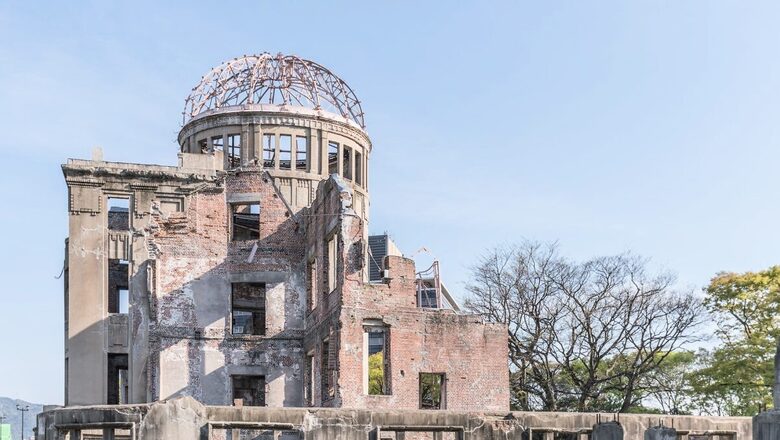
views
On August 6, 1945, during World War II, a US B-29 bomber aircraft dropped a powerful atomic bomb, code-named ‘Little Boy’ on the city of Hiroshima in Japan, killing an estimated 1,40,000 people.
Just after three days, the city of Nagasaki was bombed by the US this time dropping another atomic weapon, named ‘Fat Man’, during its war against imperial Japan.
Since then, 79 years have elapsed and the world remembers August 6 Hiroshima Day every year. A reminder of the cataclysmic impact of nuclear weapons, this day calls for unity amongst all nations in pursuit of peace and disarmament. On the 79th anniversary of the day, let’s take a look at the history and understand some key facts about it.
Hiroshima Day: History
In Japan, the city of Hiroshima used to be a major hub of industrial and military activities. At that time, Japan was a part of the Axis coalition, which also included the Nazi Germany and the Kingdom of Italy. Altogether, the coalition was fighting against the Allies — the United States, Britain, Soviet Union and China.
During World War II, Japan carried out multiple attacks against the US and British forces in its bid to take control of the European and American colonies in Southeast Asia as well as their resources.
As part of it, Japan attacked Pearl Harbor, Hawaii, and British-occupied Hong Kong on December 7 and December 8, 1941. This resulted in multiple casualties, besides causing extensive damage to the US and British fleets.
In the meantime, the US secretly went on to develop the Atomic Bomb technology under the Manhattan Project. This project was led by nuclear physicist Robert Oppenheimer. After its success, the two major atom bombs — ‘Little Boy’ and ‘Fat Man’ — were dropped on Hiroshima and Nagasaki in Japan on August 6 and August 9, 1945. As a result, Japan surrendered and this led to the end of World War II.
Hiroshima Day: Significance
While Japan did manage to recover from the nuclear attacks over some time, the shadow of a nuclear war continues to haunt the country. Every year, Hiroshima Day is marked as a plea for peace to all world powers to avoid repeating such mistakes. This is a day of solemn remembrance and reflection.
In the aftermath, Japan witnessed a series of human suffering that went on to leave an indelible scar in the annals of history. Observed at the Hiroshima Peace Memorial Park in Japan, this day highlights the effects of nuclear wars and pays tribute to the ones who were killed.




















Comments
0 comment